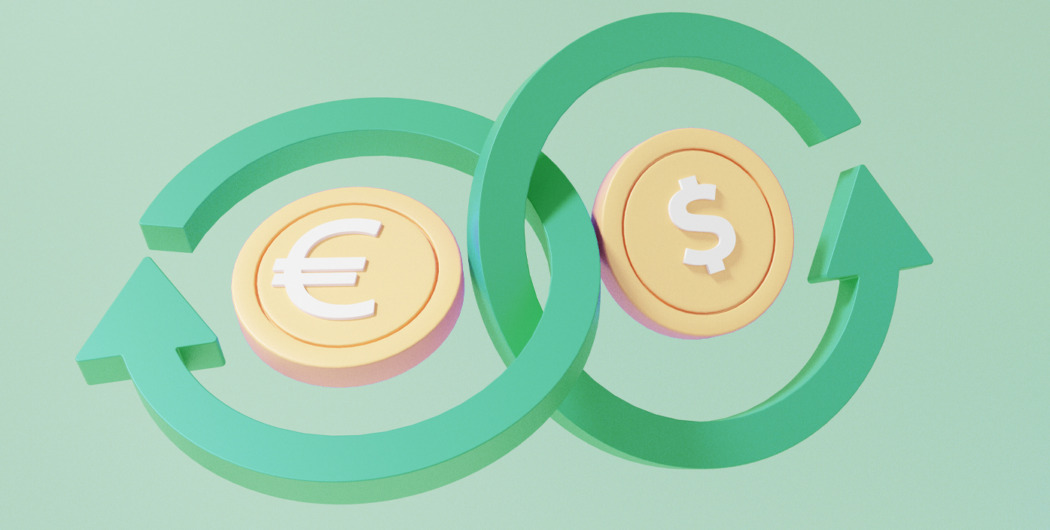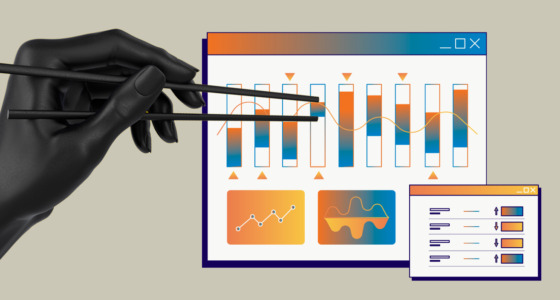

The pip value stands for the ‘Point in Percentage’ of the price movement of a currency. Professional traders use it to define the slightest variation in value between two currencies. An increment or decrement often represents the pip value of a currency pair in the digit at the fourth decimal place of a market chart.
For instance, if the price of the EUR/USD takes an increment from 1.1502 to 1.1503, it can be said that the currency pair has moved by one point or pip.
The graphic representation above explains what a pip increment or decrement could be. In this case, the EUR/USD and EUR/JPY currency pair are used to show a pip value, with an exception in the pip value of the EUR/JPY.
As you read, you’ll understand more about pips and how they are used in trading by professionals. First, let’s build our progression by looking into how to calculate the pip value.
How to calculate pip value
You can easily calculate the pip value of any currency pair by multiplying one pip—0.0001- by the specific contract/lot size. For a standard lot, this size entails 100,000 units of the base currency. In mini lots, the size entails 10,000 units.
If, for instance, we are to look at the EUR/USD currency pair, one point movement in a standard contract will be equivalent to $10 (0.0001 x 100,000). We will explain this better in the latter sections of this guide.
It is vital to note that the value of a pip will always differ with each currency pair. This is because the pip value for a currency pair is always shown in the quote currency, which always differs when trading a different currency pair.
When you’re trading the EUR/USD, the pip value will be displayed in USD, the quoted currency. On the other hand, trading the GBP/JPY will show the pip value in JPY.
Relationship between the Euro and Dollar in calculating pip value
The EUR/USD is among the most traded currency pairs by traders. Concerning pip value, these pairs share a mutual relationship which you’ll learn about in a short moment.
The first currency in the pair (EUR) is the base currency, while the second currency (USD) is the quote currency. As explained earlier, the pip value of currency pairs is displayed in the quote currency.
If a trader seeks to buy the EUR/USD at 1.1300 on a trade with a standard lot, they will have to pay $113,000 ( 100,000 x 1.13 ) to get €100,000. This relationship is similar in currency pairs with a similar quote.
Calculating the pip value if one pip using EUR/USD as an example
Since each currency has its value, it is necessary to determine the pip value for a currency pair. Also, bear in mind that brokers offer mini and standard contracts; you’ll find the specifications in the table below.
You can calculate the pip value of the EUR/USD mini and standard contract as follows
Pip Value = Contract Size x One Pip
(For mini contract);
Pip Value = 10 000 x 0.0001
Pip Value = $1
(For standard contract);
Pip Value = 100 000 x 0.0001
Pip Value = $10
This translates to a $1 gain with every pip movement in your favor for a mini contract and a $10 gain for a standard contract for each pip movement in your favor.

Best approaches to pip value
Below are a few approaches to the pip value:
- Discovering the value of a pip helps traders allocate a monetary value to their stop loss and take gain levels.
- In a situation where the pip value is in euros, traders can convert it to US dollars by multiplying it with the exchange rate.
- Instead of analyzing the price movement in pips, traders can determine how the value of their trading account/equity will change due to the market movement
Conclusion
Knowing how to determine the euro-dollar pip value is an excellent way to gain mastery over trading this pair. If, before now, you have had a hard time trading the EUR/USD pair, this guide will help you get the hang of pip values.







